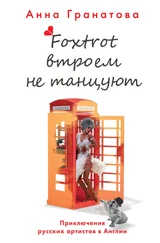The water from the plastic showerhead spit and dribbled, pooled in Leila’s clavicles, then ran down between her breasts, sluicing before it the film of sweat and yellow dust that coated her daily. For a moment, in the dark shower, she was a completely solved problem, happy as a beetle on a leaf. She thought of California, her motherland, or mother-in-law-land, really. She was on a Huffy bike, pedaling hard, her little brother standing tall on the pegs of her back axle. She was walking the Redondo Beach boardwalk in a beloved yellow windbreaker, her whittled big sister roller-skating beside her.
Then, leaving the shower and ghosting naked across the dark room, Leila killed the fan and sparrowed into her sagging netted bed. The sheet reached her ribs and lay on her like moonlight. Worries began to circle her. But she listened to the breath that she borrowed from the air and she lay still. She let the worries circle. You can’t move a muscle if you’re trying to fall asleep in Mandalay in April.
Aung-Hla was outside her place at six in the morning, and they made good time until they came to a lineup of cars waiting at an unexplained roadblock. There was no traffic coming the other way. Leila watched Aung-Hla. Was he concerned? No. So she tried to sit patiently. After half an hour, two big SUVs came roaring down from the other direction, and when the SUVs had passed, the checkpointists reopened the road. Leila and Aung-Hla didn’t make Myo Thit until one o’clock, and, from the moment of their arrival, the town struck Leila as a menacing place. The dogs flinched at unthrown rocks. Doors shut ahead of her as she walked down the street. The man who sold her a Coke wouldn’t meet her eyes. And at the teahouse in the dismal main square, she saw Aung-Hla being given grief, presumably for driving a foreign girl.
When Leila found the small clinic, she had to wait an hour before Ma Thiri had time to sit down with her. This annoyed her, but she tried to get over it; the woman was clearly busy with patients. Surely, that was more important than talking to some rich foreign girl who would be gone tomorrow. Isn’t that how Leila would have seen it if they’d swapped places? Because Leila knew well that that’s what she was here, that was how she presented: as rich. This question, in all its forms, vexed and pestered her: How much did money matter? Clearly, a lot. Being so poor hurt. This clinic was pretty dirty. Obligingly, a patchy cat skittered through the little waiting room. Yeah, rich/poor still meant everything. Did that make her a Marxist?
But then sometimes Leila saw that there was something about living closer to the ground and nearer to need, something that bestowed grace on a soul. Or was she just romanticizing poverty? That was super-annoying, when people did that. This ineffable thing she was admiring in the downtrodden Burmese — she didn’t want it enough to give away any of what she had.
They spoke in Ma Thiri’s small examination room. The walls were covered with exhortations to wash your hands and some junta-required agitprop about working together to overcome adversity and negative elements. But also some medical-anatomical and pictographic self-diagnostic posters that would probably get a school nurse in Kansas run out of town.
Leila’s Burmese was about as good as Ma Thiri’s English, so when they spoke, that rare thing happened: they shared languages; they shared all that work and risk. In all her previous interviews, Leila had found it difficult to avoid the women’s desperation, the plain truth that they would do anything to get what she was dangling before them. So it took her ten minutes to even understand that maybe Ma Thiri didn’t want her scholarship. Once Leila understood that ambivalence, she heard herself become incredulous.
“Why not seize this?” she asked. “You can return here with more knowledge and more skills.”
“But and what because if I do not return here?”
It was a jumble of words, but there was Ma Thiri’s sad smile at the end of it, and its meaning was clear to Leila. Just as Leila had been doing moments before, Ma Thiri was wondering at the puzzle of rich and poor, and she was saying that she was afraid that the West would ruin her for the tougher life that was hers to live.
“You must resolve to return, then” was what Leila said to her (or, actually, You must extra-decide to return, then, as she didn’t know the Burmese for resolve ).
But there was this amazing thing that Ma Thiri had already accomplished — the clinic — and that was mostly what they talked about. She said she’d done it for her mother, who had died from — a word that Leila didn’t understand but didn’t want to ask her to repeat because she got the important part: that it was preventable, and that Ma Thiri was still mad about that.
There was some money from a Christian charity, and perhaps more coming; there was another nurse who might begin work soon. Ma Thiri sighed. Then she smiled. “You will give me a man, also, at this hospital school?” She mentioned the dreamy doctor from a years-old TV show, and Leila laughed.
No. There were too many who needed her here, Ma Thiri decided, right there in front of Leila. And because Ma Thiri was speaking in this stripped-down way, she did not disguise the brag inside her reasoning. “I am too important here,” she said. “No one else can do this.” And it turned out that there was a sister and brother to think about as well, and an ailing father.
“Yeah, I have those too,” said Leila. But it wasn’t like Dylan or Roxana had ever kept her anyplace, or held her back; it wasn’t like her dad was sick.
By the time they were done, Leila had gotten Ma Thiri to say she would give the idea more thought. But Leila knew that this woman’s mind was made up and that this concession was a politeness. Leaving the clinic, she felt like a confused Ed McMahon walking back to the van with his enormous cardboard check.
That night in Myo Thit, Leila was the only one in her hotel. Not just the only guest — the only human soul. The man she’d assumed was the proprietor left the building, and the lady who had been washing sheets on the roof left the building. Leila lay beneath a mosquito net on a dank foam mattress in a giant room with five other beds, each one shrouded in netting so that it was extra-easy to imagine behind their scrims ghosts or rapists or murderers with machetes or ghost rapist-murderers with machetes. From the bathroom came the blink and buzz of a fluorescent tube and the plang of a dripping valve. A wet brown moth probed her net’s perimeter. Every hour a generator chugged flatulently outside. She wished she had objected more fiercely when Aung-Hla insisted on staying in some taximan dormitory down the street. How much cheaper could that place be than this one?
In the eventual morning, Aung-Hla came to collect her. She told him about spending the night with no one in the building, which she shouldn’t have, because it made him ashamed for having left her there. He yelled at the proprietor, using a kind of Burmese Leila couldn’t even catch scraps of.
“Let’s blow this Popsicle stand, Aung-Hla,” Leila said to her driver in English when they pulled away. He laughed, probably figuring that she had just said something clever.
But at a checkpoint ten kilometers outside of town, two young soldiers decided to scrutinize Leila’s foreign-visitor terrestrial-passage permission form. They made her sit in a white plastic lawn chair in their stifling wooden shack beside their bent, barber-pole-striped, concrete-counterweighted road barrier while they wrote down every number she had on paper that she could attach to herself, including the digits from an expired membership card to the YMCA pool in Oakland, California. They made Aung-Hla sit in his taxi.
Читать дальше












